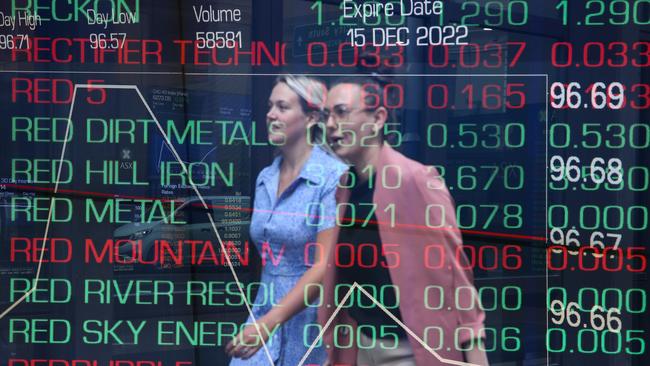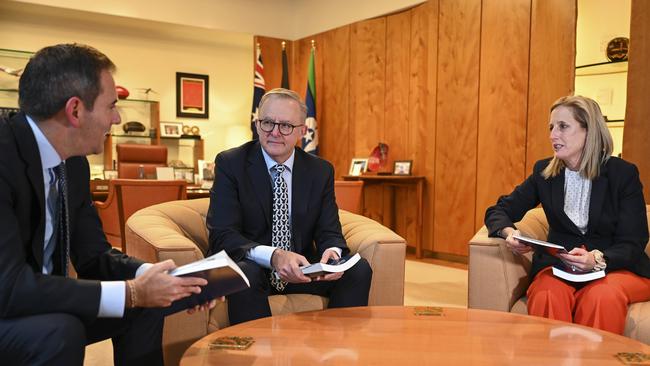Chalmers insists support for vulnerable won’t fuel inflation
The Treasurer said he was ‘pretty confident' the government’s billions in spending won’t trigger further rises in inflation.

Giving $3.6bn in support to vulnerable households for cost-of-living relief in the coming financial year, including $1.5bn in federal energy bill subsidies and boosted rent assistance payments, will drive inflation down by three-quarters of a per cent in 2023-24, Treasury has claimed.
In what is set to be a flashpoint in parliament and attract scrutiny from professional economists, Jim Chalmers said he was “pretty confident” the government had crafted a package of measures that would extend billions in additional support to help Australians cope with high and rising prices without adding fuel to the inflationary fire and forcing further Reserve Bank rate hikes.
Jim Chalmers acknowledged “there will always be a range of views” and that “typically on budget night, there is not unanimity across the economic community about budgets”.
“Our really strong view and our strong advice is that measures like the combination of the price caps in energy combined with the bill relief will put downward pressure on the CPI forecast next year,” Dr Chalmers said. “It will take about three-quarters off (measured consumer price index over the 12 months), and the other measures won’t add to inflation.”
The additional cost of living support in 2023-24 is part of $12bn in extra spending in that financial year as a result of government policy decisions made since October, the budget papers show.

Rich Insights director Chris Richardson has estimated a rule of thumb that every $6bn injected into the economy would translate to interest rates being 0.25 percentage points higher than otherwise – suggesting mortgage holders could pay in higher interest payments for the government’s support for the vulnerable.
But Finance Minister Katy Gallagher said the $12bn included flagged expenses that were ongoing but had not been funded by the previous government, and Treasury believes this additional operational expenditure would not be inflationary.
From 7 per cent in the year to March, Treasury forecasts inflation will ease to 6 per cent by June, before almost halving to 3.25 per cent by mid-2024, versus an October forecast of 3.5 per cent. The Reserve Bank recently estimated annual consumer price growth would reach 3.6 per cent in just over a year’s time.
“Inflation has peaked and begun to moderate,” budget papers say. The papers show Treasury officials anticipate a sharp slowdown in consumption growth from 5.75 per cent in 2022-23 to 1.5 per cent in the coming financial year, as “the cumulative impact of cost-of-living pressures and higher interest rates is now constraining household budgets”.
The papers say a slower-than-anticipated drop-off in spending is a key risk to the outlook, as was a deterioration in global financial conditions. “Any additional persistence in inflation that keeps interest rates higher for longer would further heighten this risk.”
Treasury now expects wages to grow by 4 per cent in the year to June 2024 and, with inflation in that period anticipated at 3.25 per cent, provide the first taste of real pay growth in a number of years.




To join the conversation, please log in. Don't have an account? Register
Join the conversation, you are commenting as Logout